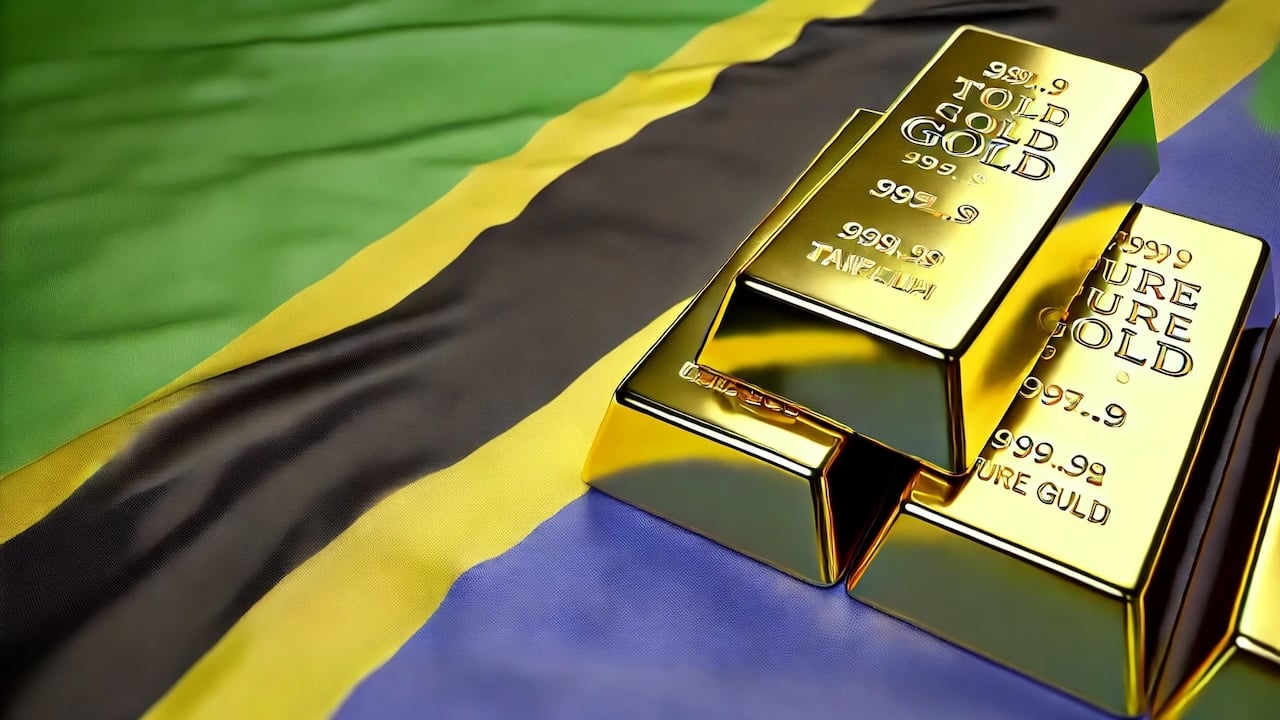(Mike Maharrey, Money Metals News Service) Tanzania is poised to expand its gold reserves. According to a Reuters report, the East African nation’s mining regulator has ordered all mining firms and gold exporters to allocate 20 percent of their gold for purchase by the Tanzanian central bank.
The Bank of Tanzania (BoT) began purchasing gold from local traders and miners earlier this year, hoping to boost foreign reserves as its local currency devalues. According to Reuters, the BoT plans to buy six tons of gold.
Miners and gold traders will be required to transfer gold to two refineries in the country. According to a statement from the mining regulator, “All payments will be done according to the Bank of Tanzania arrangements.” The agency didn’t provide details on the rates it would pay for the gold.
This is just one in a series of steps the Tanzanian government has taken to shore up its currency.
In June, Tanzania Finance Minister Dr. Mwigulu Nchemba issued a directive mandating that all transactions in the country must be advertised and conducted in Tanzanian shillings in an effort to curb the widespread use of the U.S. dollar in the country.
In May, the Tanzanian central bank began selling dollars held in its reserves to commercial banks hoping to ease a dollar shortage. The combination of a growing demand for greenbacks coupled with the shortage led to a growing black market for dollars.
During a budget speech before the Tanzanian National Assembly, Nchemba emphasized the problems with dollarization and said that it is “hindering economic progress.” He also said the situation increases “unnecessary” demand for foreign currency and that it undercut those who need dollars to import essential goods into the country.
Tanzania isn’t the only African nation expanding its gold holdings through the purchase of domestic gold. In July, Uganda announced a domestic gold-buying program.
According to a statement on the Bank of Uganda’s website, “The gold purchase program will help in accumulating foreign currency reserves and address the associated risks in the international financial markets.“
Nigeria also runs domestic gold-buying scheme to bolster its reserves. In addition to buying locally sourced gold, the Nigerian central bank has announced plans to bring its existing gold reserves back into the country “to mitigate risks associated with the weakening U.S. economy.”
“Economic indicators such as rising inflation, escalating debt levels, and geopolitical tensions have raised apprehensions among Nigerian policymakers about the stability of the U.S. financial system.”
According to a report by Business Insider Africa, Ghana also requires big gold miners in that country to sell 20 percent of their refined gold to the country’s central bank.
Meanwhile, a presidential candidate in Ghana recently said he would back the country’s currency with gold if he wins the election.
“Ultimately, my goal is that we are going to back our currency with gold and that is where I want us to go, increasingly backing our currency with gold,” Dr Mahamadu Bawumia said.
He went on to say a gold-backed currency would “keep a lot of stability in the exchange market.”
“Right now, we don’t have an anchor to hold the currency, but if we back it with gold, it will be very stable, because its value ultimately will be reflected by the value of gold, which is very stable.”
Ghana recently overtook South Africa to become Africa’s biggest gold producer.
The growing movement toward gold in Africa underscores an important truth: while fiat currencies come and go, gold has remained a trusted money for over 5,000 years.
Mike Maharrey is a journalist and market analyst for MoneyMetals.com with over a decade of experience in precious metals. He holds a BS in accounting from the University of Kentucky and a BA in journalism from the University of South Florida.

